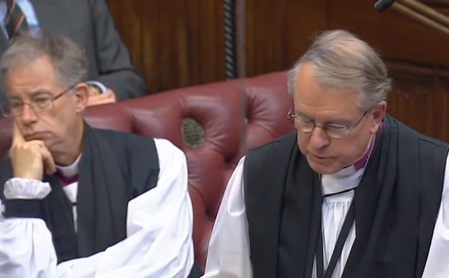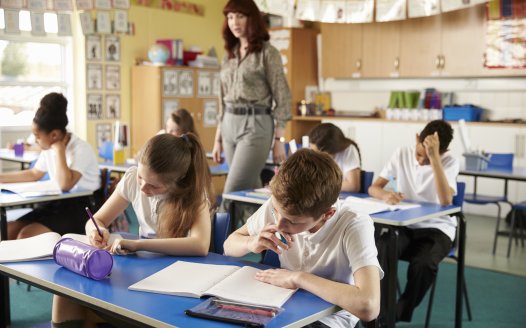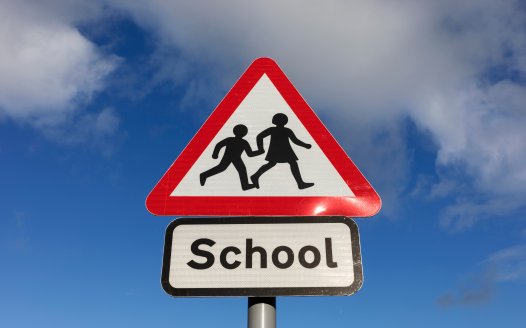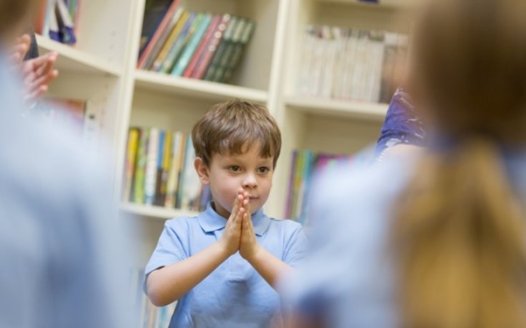NSS criticises move to entrench faith school protections in law
Posted: Wed, 25th May 2022
The National Secular Society has criticised a move to enshrine protections for the ethos of faith schools into law as a missed opportunity for child rights.
The Schools Bill will put into law that religious institutions in England must have a "clearly defined role" in the running of schools with a religious character if they become academies.
At present these protections only exist in the funding agreements for academies and not in primary legislation. Religious institutions which control faith schools have complained these "weaker arrangements" hold back some faith schools from converting to academies.
There are no plans for equivalent laws to protect the secular, community ethos of academies without a religious character.
The Schools Bill will also ensure faith schools which become academies provide religious education (RE) and collective worship "in accordance with the tenets and practices" of their religion.
The NSS is campaigning for reform of RE so that it is broad, balanced and objective in all schools, and to abolish laws requiring daily acts of collective worship. The United Nations have recommended the UK repeal its laws requiring collective worship in all state schools.
But the government has said that a change in law on collective worship is "unnecessary", adding that collective worship "encourages pupils to reflect on the concept of belief".
Bishops' bench "very grateful" for faith school protections
During the bill's second reading in the House of Lords on Monday, Paul Butler and Steven Croft (pictured), who sit in the Lords as of right as Anglican bishops, welcomed the move.
Butler said the provisions set out how the "settlement between Church and state continues" and said the Church of England was "very grateful" for the way in which ministers have engaged with the Church so that "areas of policy with specific relevance to the future of schools on sites that have been provided by the Churches are addressed".
But other peers spoke out in favour of more inclusive education. Baroness Joan Bakewell highlighted the difficulties faced by nonreligious parents who have no option but to send their children to faith schools. She said the right of withdrawal from RE and collective worship is "demeaning and discriminatory, and often results in children languishing aimlessly in empty classrooms", and said the situation "needs to be challenged".
Baroness Molly Meacher said: "I hope this House can ensure that the content of religious education and worship in all schools reflects the full ambit of freedom of religion and belief and that a pluralistic and critical approach is adopted".
Cracking down on unregistered schools
The NSS has welcomed a separate provision in the Schools Bill which will give authorities greater powers to tackle illegal unregistered schools – something the NSS has long lobbied for.
Peers also welcomed the bill. Baroness Meacher said: "We know that the education provided in many unregistered religious schools is narrow in scope, predominantly scriptural in content and deeply conservative, intolerant and extreme in outlook.
"Because these schools have been able to evade inspections, bad practices of all kinds appear to have developed. Former pupils of such illegal settings told an all-party parliamentary group in December of the physical, emotional and sexual abuse they had suffered. They also talked of the narrow religious curriculum, with no English, maths or science in their school experience".
NSS comment
NSS chief executive Stephen Evans said: "We very much welcome the measures to tackle unregistered religious schools. We look forward to working with the government through the bill's passage to ensure the legislation is robust enough to put an end to children being systematically undereducated in unsafe illegal schools.
"But the decision to freshly legislate for collective worship and faith-based RE is alarming.
"In its last periodic examination of the UK's human rights record, the UN Committee on the Rights of the Child asked what steps the government was taking to repeal such laws, but here they are further entrenching them in statute. Meanwhile, there are no such protections for the secular ethos of community schools.
"Any new bill to raise education standards should also raise human rights standards by removing archaic requirements for children to take part in religious worship."
The NSS has met with Department for Education to discuss their concerns with the bill.
No more faith schools
We need inclusive schools free from religious discrimination, privilege or control. Join our campaign.










